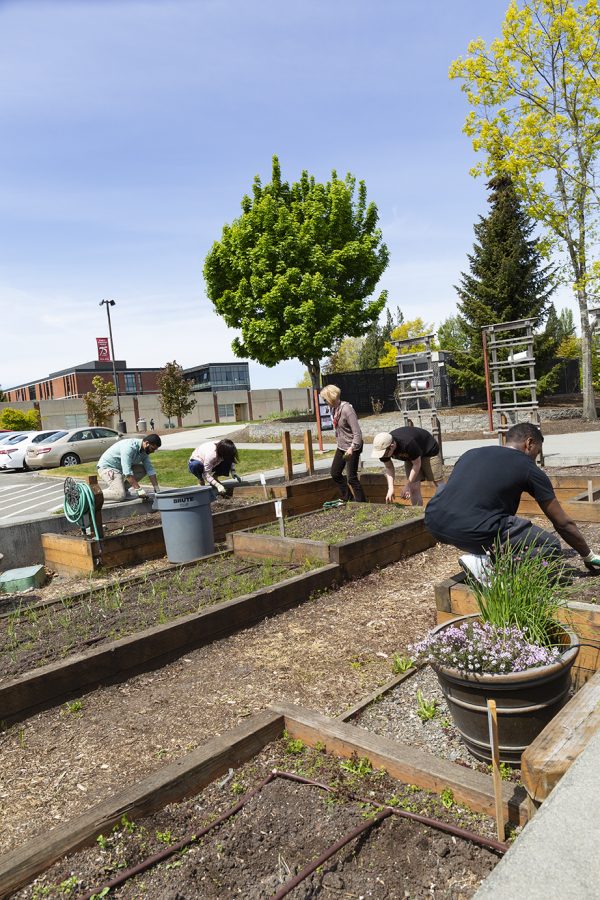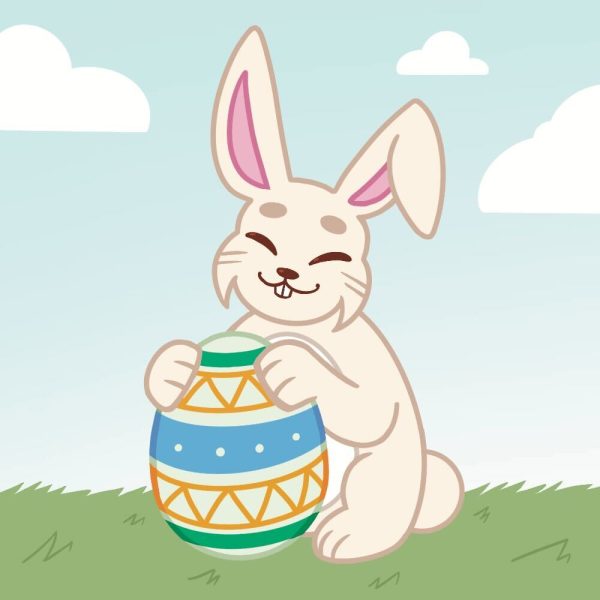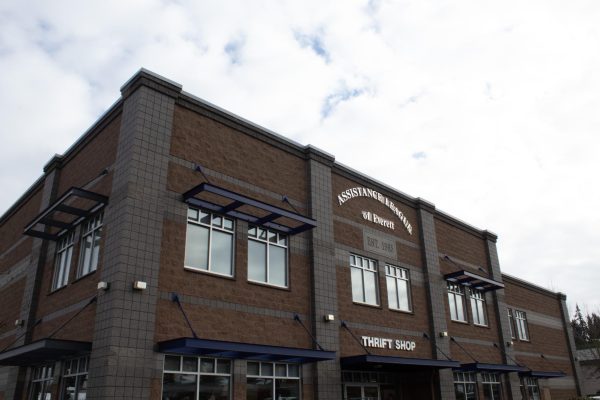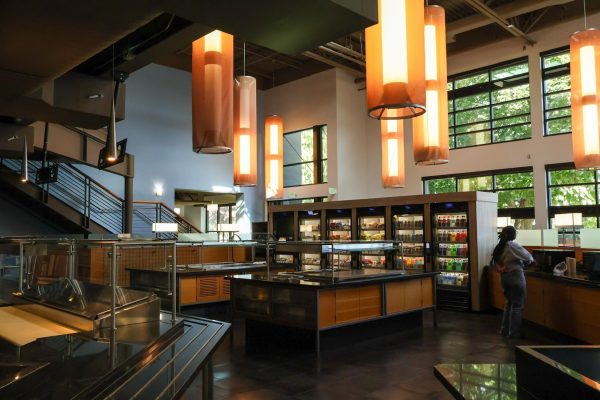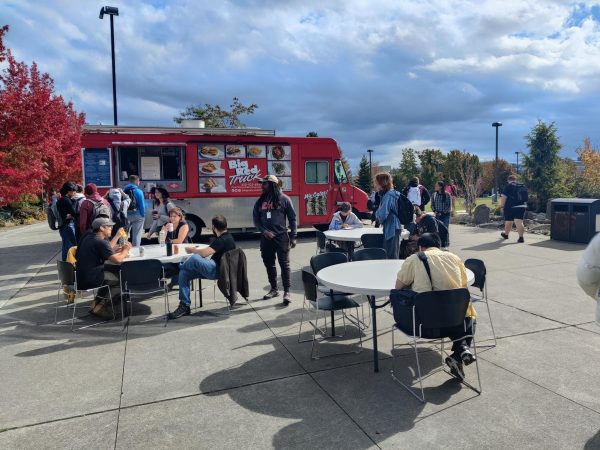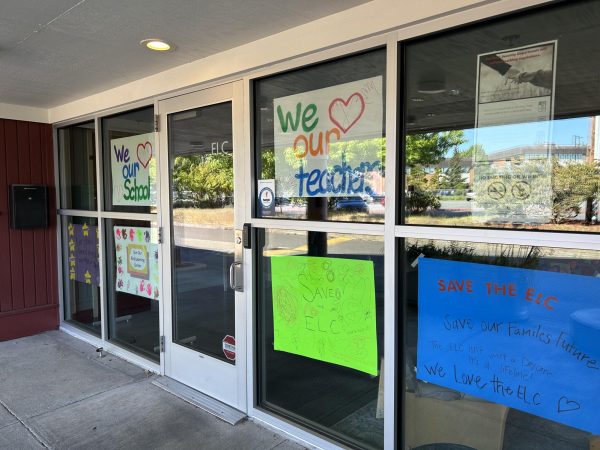What the Garden Grows: Strawberries, Leeks and Onions, Oh My!
Students can volunteer in the campus gardens over spring and fall quarters.
Editors note: In the interest of full journalistic transparency, the author of this article has a conflict of interest with its subject. Jacob Dickson has volunteered in the EvCC gardens, and did so while writing this article. This article is published after the explicit understanding of this conflict of interest, and with an explanation of the bias, both before and after the release of the article.
The EvCC gardens are run by Laura Wild, and she is using the gardens to show how easy growing your own food can be. There’s a plot growing on the EvCC campus. It started outside of Whitehorse almost a decade ago and it’s been growing ever since.
Wild, EvCCs nutritional science instructor, has been teaching at the school for 17 years. In 2010 she began teaching her Food Sustainability class. The next year she received funding from the EvCC foundation and the science department to build the school produce gardens.
The gardens were designed by John Syson, head of the campus grounds crew. The raised beds are run as sustainably as possible. They use an irrigation system modeled after irrigation systems used in deserts to conserve as much water as possible to grow the produce.
What the garden grows is planned yearly. “Every January I sit down with [Syson], and we kind of decide what we need,” said Wild. “What grows is based both on what will be needed in class and what can be harvested by the end of the quarter.”
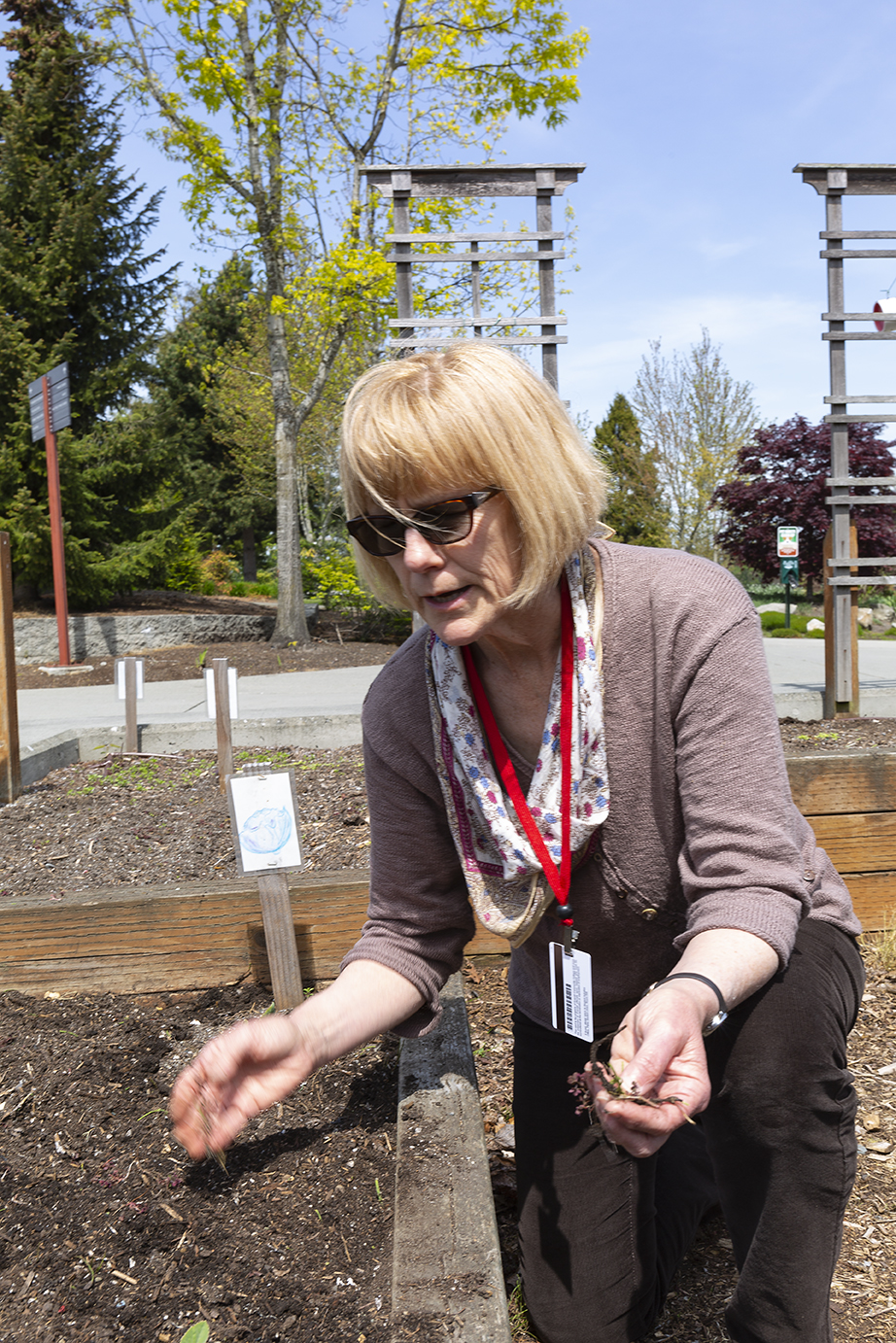
Nutrition Sciences instructor Laura Wild has been teaching at EvCC for 17 years. She helped start the school gardens in 2011.
This quarter the raised gardens are currently growing lettuce, beets, cauliflower, celery, potatoes, peas, strawberries, broccoli, leeks and onions.
Over the years, the gardens have spread over the campus whenever possible, “It’s kind of a stealth initiative,” said Wild. “Sometimes we sneak in pumpkins in the ornamental planting.”
Another example that people may have noticed, the colorful leafy plants that grew over last winter quarter in the flower beds. That was kale. “We’re all about getting more food grown,” said Wild.
Another direction the garden grew was when Index Hall A was torn down in 2014. The space spent some time as a parking lot before being converted to green space. The garden was expanded to take over some of the area that was not used for parking, which was set up by the grounds crew.
Wild is not sure how much food the school gardens produce, but she estimates “a couple hundred pounds,” though the exact amount is not weighed. “We might get 30 dollars out of one quarter,” she said, and they usually get more in fall quarters, between “50 to 100 dollars worth of produce.”
But saving money is far from the real goal of these gardens, the reason for these expansions goes back to the program that started the gardens, food sustainability. “It’s important to show people how easy it is to grow food,” said Wild. “We have so much local food, and it can even come from your yard.”
Syson shares this ideal of helping people be more aware of their food. In the campus greenhouse, “We grow some tropicals like oranges and bananas,” said Syson. “Things that I can put out on the campus… and shock a few students.”
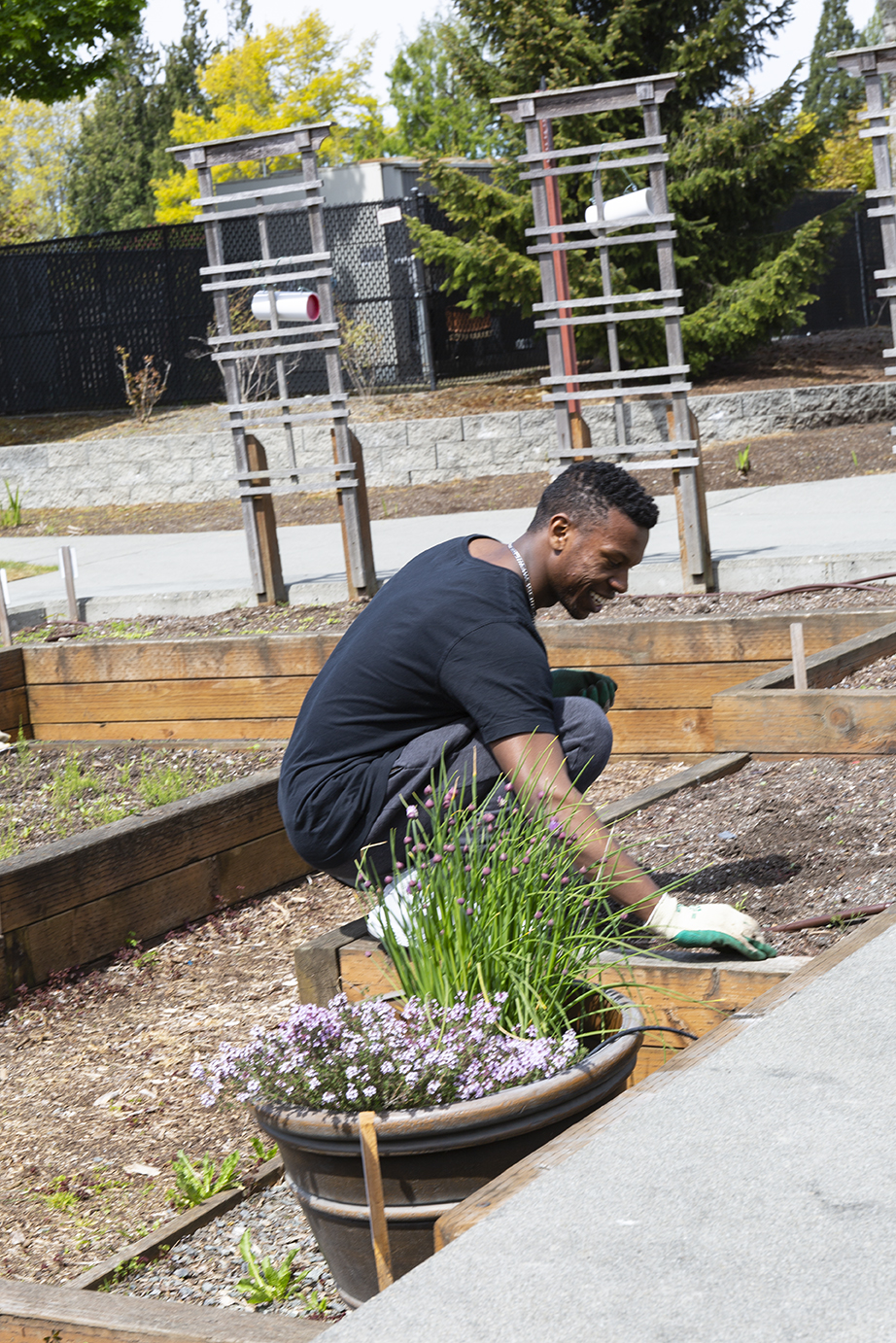
Student volunteers maintain the garden outside of White Horse Hall. Current plantings include lettuce, beets, cauliflower, celery, potatoes, peas, strawberries, broccoli, leeks and onions.
The idea is to connect people to the food they are eating. “A lot of people have eaten bananas, but they don’t know what a banana tree looks like,” said Syson. “It points out, you’re eating your food, [but] where does it come from?”
Tropical plants are raised in the greenhouse during colder seasons, and planted around the campus when temperatures are warm enough to support them.
This is a huge part of the school gardens, and Laura Wild’s classes: teaching people how they can find more local food, grow more local food and eat more local food.
Students interested in the gardens should look into joining the Nutrition 180 class next fall, or contacting Wild directly to volunteer in the gardens outside of the class. “I love to have volunteers,” said Wild. “I just love to see more students get involved.”

What interests you about journalism?
I chose it at random. I was listening to an autobiography while I was driving to school and they mentioned...

What interests you about journalism?
What I love about journalism is that it is a written and visual record of our history. As a journalist, you...

